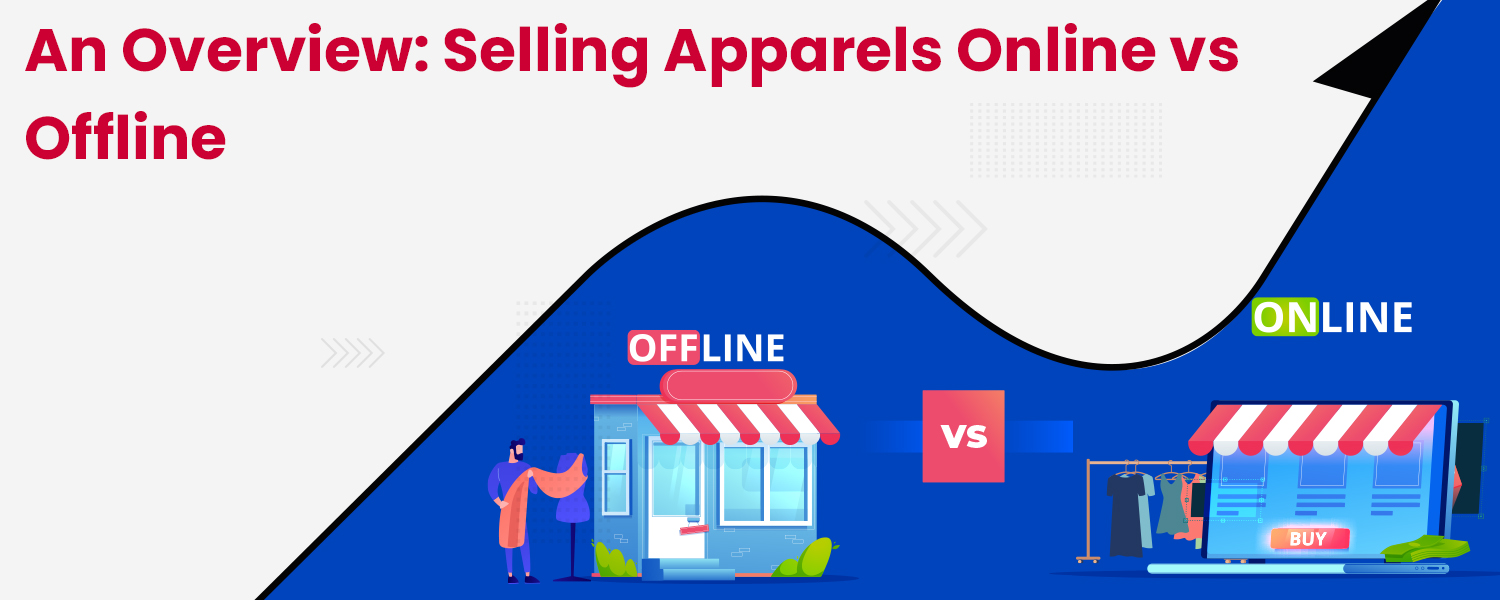You want to start your apparel business but haven’t been able to figure out whether you should go for a traditional retail shop or set up an online garment business? The choice is difficult but is one of the most important ones that will affect many other decisions you will make along the way.
Lately, eCommerce stores’ popularity has been on the rise due to the pandemic; however, offline stores remain a favorable choice among some consumers. If you’re wondering which option is better, decide after carefully analyzing your options.
Brick and mortar stores have got a strong foothold in the industry. However, with the eCommerce sector growing at a fast pace, the grip on offline retail stores has been weakening. According to an eCommerce study, 67% of millennials prefer shopping online to a physical store. For a long time, the numbers have been indicating that more people shop online every week than in physical retail outlets.
Let’s evaluate the pros and cons of both options to have a better idea about which business model will be suitable for you.
Pros of An Online Store
Lower Upfront Costs
Setting up an eCommerce store essentially means setting up a website. To create a website, you will mainly need to spend on purchasing the website domain and hiring a web developer. On the other hand, for setting up a traditional retail store, the cost usually includes rent, furnishing, staff, and utilities. Therefore, starting an eCommerce store is financially a much more affordable option, and you can also serve a larger customer base.
Convenience
Online stores give customers the freedom and convenience to shop from the comfort of their current location. Considering today’s fast-paced lifestyle, this convenience can make the shopping experience for some consumers more tempting.
Data Collection
Going digital brings about many benefits for eCommerce sellers. With an eCommerce platform, you can monitor customers’ interactivity on your website and analyze their shopping patterns which are crucial for your business growth. Such data collection helps in offering a tailored experience to the customers by adapting and modifying the inventory planning, marketing methods, etc.
Cons of an Online Store
Higher Marketing Budget
Since online stores don’t exist physically, people may not be able to find out about your store. You will need to spend money on marketing to create brand awareness and use different marketing tactics to drive traffic to your eCommerce store.
Loss of Personal Interaction
A lack of face-to-face interaction may become a reason for not being able to build a meaningful relationship with customers. You may need to put in more effort to make your online store more appealing and useful to customers.
Cost of Return Orders
Shopping virtually means the customers don’t get to feel the physical product which may increase the number of return orders if customers are not satisfied. However, the best solution to reduce discrepancies is to provide an accurate description of the products along with genuine images of a product.
Pros of an Offline Store
Physical Location
A physical store does the advertisement for your brand. Since your store has a permanent address, it constantly serves as a reminder for customers to visit when they’re nearby.
Shopping Experience
For some buyers, purchasing from a digital screen is just not satisfying due to the lack of a physical experience. In a physical store, you can upgrade the racks, flooring, fragrance, and other aspects to keep the environment welcoming.
You Get What You See
Seeing and touching a product can make a whole difference to customers’ purchasing experience. They can ensure if they want to keep a product or reject it by holding it physically.
Cons of an Offline Store
High Maintenance
The upfront costs of setting up a physical store are quite high. Plus, the running costs of a physical store are high too. Paying for rent and utilities every month can dry up your funds before you know it.
Permanent Location
Although the location may give you a brand presence, it can also be a drawback. In rare cases, unforeseen circumstances like the development of the area could cause potential sales risk due to traffic in the area and other reasons.
Longer Working Hours
Generally, physical stores open for at least 8-10 hours a day. You need to cater to customers who may shop after returning from work or on weekends, which means you don’t have the luxury to enjoy flexible working hours.
Going by the above analysis and the ongoing pandemic, setting up an eCommerce store for an online garment business could be the better option. It would save you from upfront costs and would offer better benefits as more and more people are preferring contact-less shopping. If you set up an eCommerce platform, opt for free sign up with NimbusPost, the most trusted shipping aggregator in India to manage your shipments at the best rates. With NimbusPost, you get to choose your courier partner after comparing the shipping rates of 27+ shipping partners who deliver across 29000+ pin codes.




